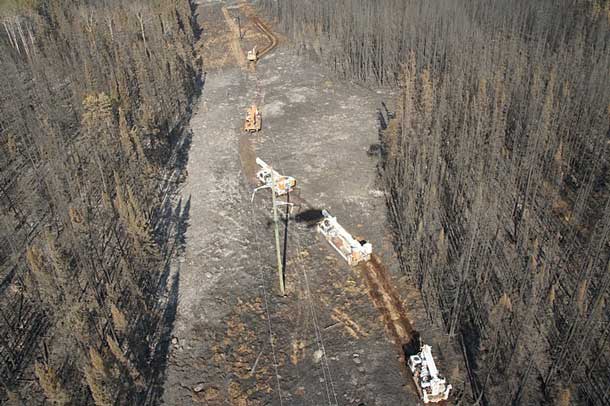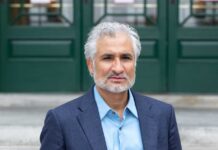
“We are moving to the point where everyone will experience … climatic events and the physical consequences”, British official warns
By Laurie Goering
LONDON (Thomson Reuters Foundation) – Shifting the world’s energy systems to cleaner sources to hold the line on climate change would cost an “eye-watering” $830 billion annually for the next 35 years, according to Oxford University climate scientist Myles Allen.
But that is just 10% of what is now spent on energy each year, said Allen, one of the authors of a landmark 2018 science report that looked at the costs of limiting – or failing to limit – global temperature rise to 1.5 degrees Celsius (2.7F).
Around the globe, climate change is wreaking increasingly expensive damage, but finding the cash to try to prevent that and to cut emissions is proving a challenge, researchers and officials told a London Climate Week event on Monday.
In Uganda, repeated landslides after heavy rainfall near Mount Elgon have cost more than 100 lives in the last decade, said Sam Cheptoris, its minister of water and environment.
“We have learned painfully that climate change is real and its impacts are devastating,” he said during a discussion on financing climate action.
But efforts to move 10,000 people out of harm’s way have been hamstrung because “the resource envelope is small” and costs for new homes, schools, water pipes and other infrastructure are high, he added.
So far just 150 people have been relocated, said Cheptoris, who comes from landslide-prone Bududa district, near the Kenyan border.
Uganda, where farms rely on increasingly erratic rain to grow crops, also needs huge investment in irrigation to keep its farming-dependent economy going as drought worsens, he said.
But so far it has been able to afford little more than a few small projects, he said.

PRIVATE CASH
Finding enough money to help poor countries adapt to climate threats will require involving private investors, said Sabera Khan, director of Zambia-based firm Lloyds Financials Ltd.
In that southern African nation, she is working with the government to award public contracts to companies to install off-grid power in rural areas – something private firms would be unlikely to venture into on their own.
An initial $12 million invested by the government in the project now looks like it will leverage $40 million in private spending over the four-year life of the project, as private clean energy businesses take off, she said.
In the 18 months since the effort began, 600,000 rural households have gained access to clean power, she said, ahead of an aim to electrify a million homes by 2021.
The project, backed by the Swedish government, will be expanded to Mozambique, Liberia and Burkina Faso, she said.
But far too few least-developed countries (LDCs) have adequate plans in place to absorb the private money that is available, Khan said.
“Lots of LDC projects are wish-lists, not investable projects,” she said. “Having a wish-list is not convincing enough for financiers to come in.”
FIRE INSURANCE
Simon Young, a strategic advisor to Willis Towers Watson, an international risk and capital advisory firm, said a quarter of its business is now related to helping clients manage climate risks.
Doing that will require innovation, such as adapting insurance now used to manage droughts in Africa or cyclones in the Pacific Islands to help governments in the U.S. West manage the growing threat of wildfires, for instance.
“County and city governments desperately need a way to get finance quickly if budgets for fire containment get shot in the first month of fire season,” he said.
Life insurance models might also be adapted to protect endangered ecosystems such as coral reefs, he added.
Developed and developing countries can learn from each other in managing climate threats, said Lamin Dibba, Gambia’s minister of climate change, environment and natural resources.
Poorer nations have grasped that putting “economics over environment costs you more and damages your society”, he said.
They could teach rich countries, increasingly at risk of climate threats themselves, about the need to build stronger infrastructure that stands up to wilder weather, he said.
Emma Howard Boyd, chair of the UK Environment Agency and Britain’s representative on the Global Commission on Adaptation, said the climate risks for her country are already clear.
“We are finding… our staff on the forefront of the climate emergency here in the UK on a daily basis,” she said. Last month, the county of Lincolnshire was hit by flooding after two months of rain fell in two days, she said, while elsewhere farmers are struggling with drought and fish are dying as water in streams disappears.
“While the significance of some of the events we’re dealing with are on a smaller scale today… we are moving to the point where everyone will experience those contrasts of climatic events and the physical consequences,” she warned.
(Reporting by Laurie Goering @lauriegoering; editing by Megan Rowling. Please credit the Thomson Reuters Foundation)






